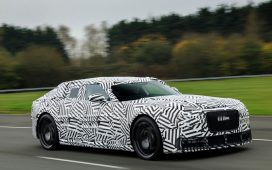The City of Cambridge invited residents to discuss the Net Zero Transportation Plan — an initiative aimed at removing greenhouse gas emissions from transportation in Cambridge — in a two-day set of community meetings.
A fully online gathering via Zoom was held Tuesday while an in-person meeting was organized the following day at the Citywide Senior Center next to City Hall.
Stephanie Groll, the mobility strategy manager for the Community Development Department, said that the Net Zero Transportation Plan not only aimed to create a net zero emission transportation system, but also strived to make it accessible to Cambridge residents.
“The purpose of this project is to develop a plan that will cut climate pollution from transportation in Cambridge while also creating a better, more equitable transportation system,” Groll said.
The Net Zero Transportation Plan is the third portion of the Cambridge City Council’s strategy to reach zero emissions in Cambridge by 2050, alongside the Net Zero Action Plan and Zero Waste Master Plan, launched in 2015 and 2018, respectively.
Groll said that the purpose of the community meetings was to introduce Cambridge residents unfamiliar with the Net Zero Transportation Plan to the project and collect feedback from them regarding the current draft actions.
“We have been talking about this project for a while, so our goals for today are for anybody new to the project to introduce them to what the Net Zero Transportation Plan is, why we’re making one, how we’re making it, and to share our draft actions today so that we can hear from community members any thoughts they have about the draft actions,” she said.
Attendees were encouraged to voice any personal concerns and ask questions during the virtual meetings regarding the projected plans.
The in-person meeting featured several booths where residents could learn about the current draft action plans and share their opinions and ideas to city volunteers.
Tyrone Fells, a volunteer with the city, said that one of the ways the Net Zero Transportation Plan aims to cut emissions is by increasing the number of people riding bikes and taking the MBTA.
“Everyone’s in agreement that it’s a great idea to reduce car ownership as well as car trips by either encouraging people to take the train more or ride bikes more,” he said.
However, Fells also noted that the public has raised some concerns about reduced car ownership.
“Especially with people who may be elderly, wondering, ‘I’m not at a stage in my life where I can drive a bicycle. So, what am I to do? It’s easier for me to jump in my car and drive from point A to point B, than either wait 20 or 25 minutes for a train that might be delayed,’” he said.
Other residents cited mobility concerns related to public transit in the city.
“I live in Cambridge and I cycle around the city, but my brother is dependent on his wheelchair in the neighboring town,” said Jackie Gong, a virtual attendee.
“There are bus lines that connect us, but it’s not very convenient to get the wheelchair on the bus. Not all the sidewalks are very pedestrian friendly,” Gong said. “If stations and bus schedules are made more reliable and accessible, then that also expands that sort of usage.”









